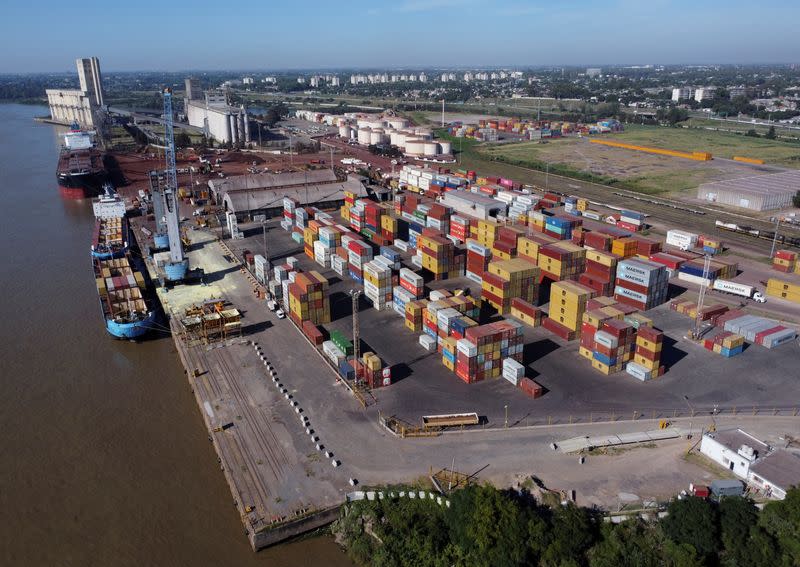Port strike suspended at Argentine grains hub, ensuring flow of goods

BUENOS AIRES (Reuters) -Port worker unions in Argentina cut short a planned strike in grains shipping ports in the Rosario region following government-ordered talks, a union head said on Thursday, in welcome news for the country's farm exports.
The area north of the city of Rosario along the Parana River is Argentina's main agricultural exports hub, where more than 80% of its processed soybeans, corn, wheat and other farm products are shipped to global markets.
The FESIMAF maritime workers federation, which groups several unions, announced plans to start a 48-hour strike earlier on Thursday, arguing that the Tugboat Owners Chamber (CAR) refused to negotiate an expired collective bargaining agreement.
"We're all working normally," said Raul Durdos, head of the SOMU union, a member of FESIMAF.
He added that government officials had ordered a stop to the strike from 1 p.m. local time, to allow for talks between workers and companies.
The brief strike did not alter operations at the bustling ports, particularly busy at this time of the year due to the ongoing soybean and corn harvests, Argentina's top cash crops.
FESIMAF had allowed tugboats, which also guide vessels that supply power plants with liquefied natural gas, to continue operating to prevent energy shortages.
(Reporting by Natalia Siniawski, Maximilian Heath and Stéphanie Hamel; Editing by Jason Neely, Marguerita Choy and Angus MacSwan)

 Yahoo Finance
Yahoo Finance 